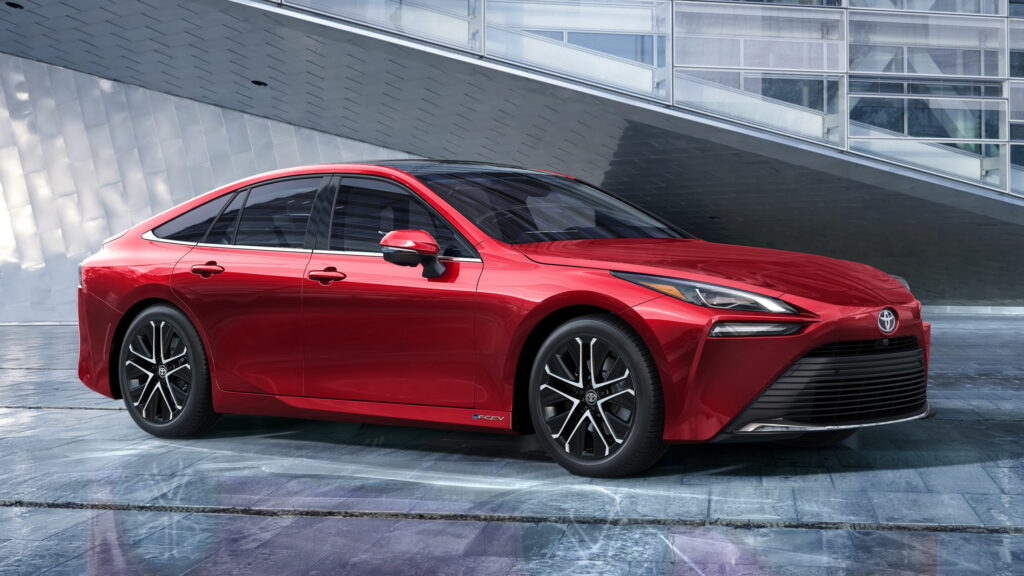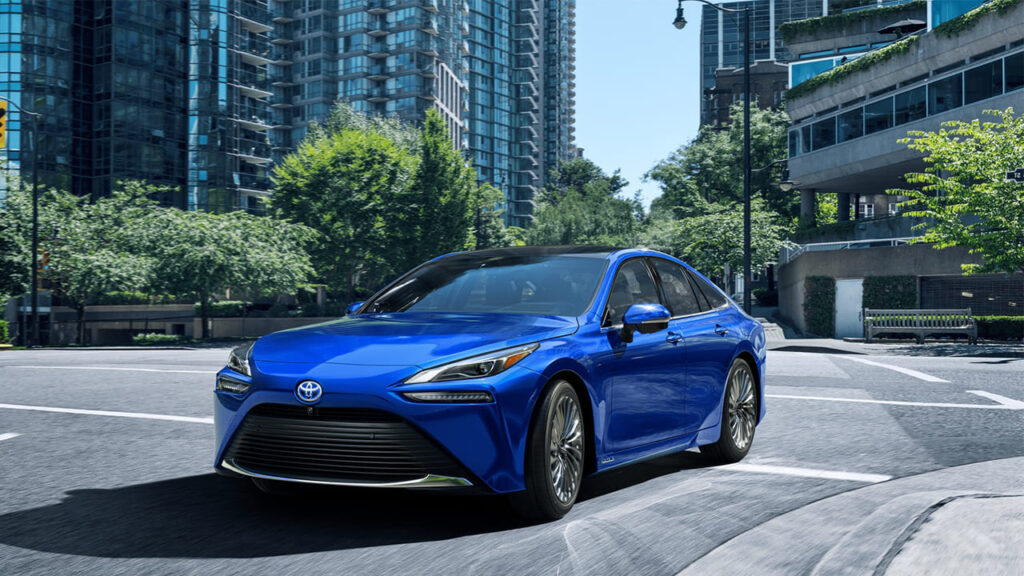
Hydrogen Powered Cars Pros and Cons
Hydrogen cars are the new talk of the town in current times as it challenges other type of vehicles like electric vehicles or conventional petrol/diesel vehicles. And hence, we are going to discuss what they are and Hydrogen Powered Cars Pros and Cons. Hydrogen cars are vehicles that use hydrogen gas as a fuel source. These are technically known as fuel cell electric vehicles (FCEV). Similar to traditional electric vehicles (EVs), they generate electricity to power an electric motor. The key difference is that FCEVs use a fuel cell to produce electricity, which then drives the electric motor which ultimately powers the car. These vehicles are equipped with hydrogen tanks to store the fuel needed for operation.
A fuel cell is an electrochemical device that converts the chemical energy of fuels such as hydrogen, natural gas, or methanol into electrical energy without combustion. There have been three main cars that have gone into production: the Toyota Mirai, Hyundai Nexo SUV, and Honda Clarity Fuel Cell. However, their sales performance has not been impressive, with only a few thousand models sold, mainly in California, Japan, and Europe.
Hydrogen is the most abundant element in the entire universe, but it is not found in its isolated form, instead, it exists as part of combined entities such as H2O (water).
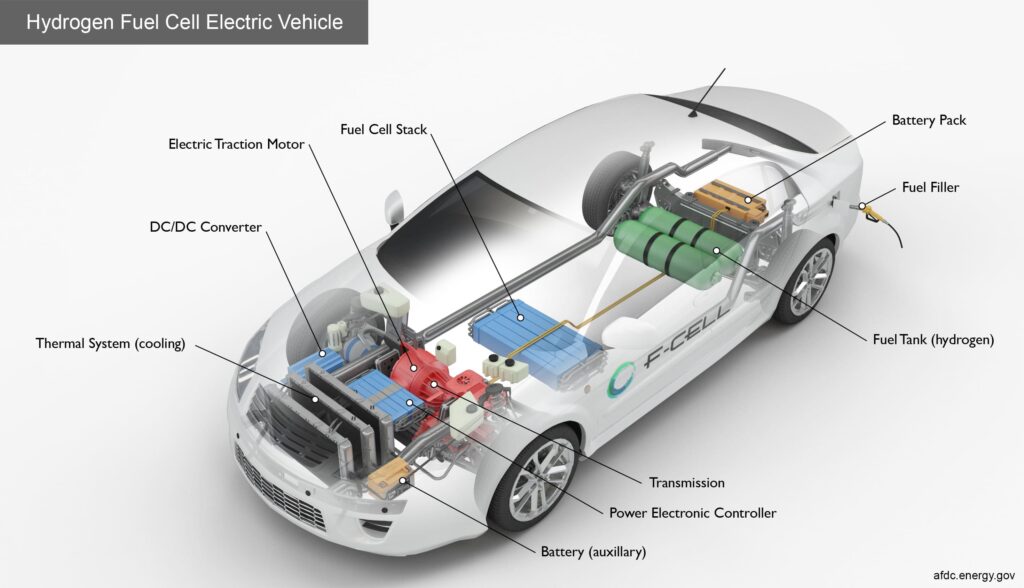
Table of Contents
Pros of FCEVs
1) Greenhouse Gas Emission
Hydrogen-powered cars do not emit pollution like vehicles with internal combustion engines; they only release water vapour.
2) Quality and Quantity of the resource
It is a renewable source of energy and Hydrogen is the most available element in the universe which makes it a better choice as fuel unlike petrol/ diesel or lithium( for EVs) vehicles whose quantity is limited.
3) Refill time
The refill/ charge time is very short, only around 5 minutes, unlike electric vehicles (EVs) which can take a few hours to fully charge.
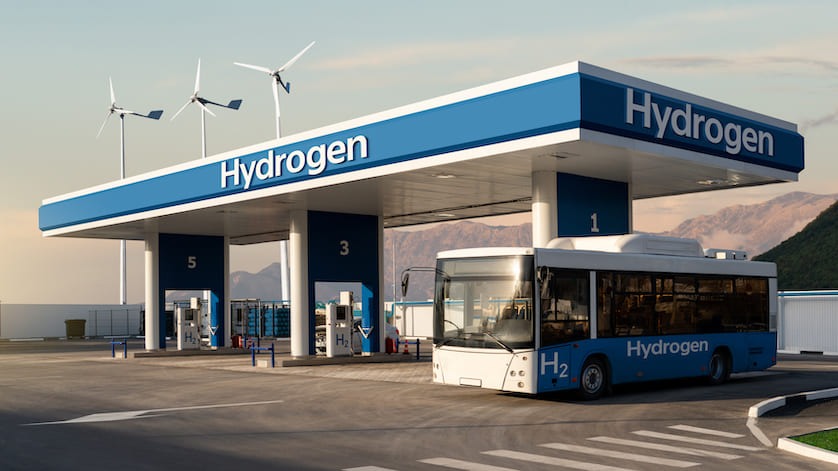
4) Energy Density and Energy Content
Hydrogen has way better energy density as compared to fossil fuels. Hydrogen has the highest energy content of any common fuel by weight.
5) Range and Refilling comfortability
There is no range anxiety and a typical car can run around 300 miles in a single refill easily.
6) Noise Pollution in FCEV vehicles
It doesn’t cause any noise pollution
7) Fuel Cell Buses and Trucks: Hydrogen Powered Cars Pros and Cons
Fuel Cell buses and trucks are getting popular in various countries like China and U.S. This is because countries are slowly shifting from carbon emitting vehicles to greener solutions, where EVs are an option whereas the heavy vehicle weight and large distance requirement increases the size and weight of the battery proportionally. This is where fuel cell technology comes into play and provides help i.e, emission free green energy as well as lowered weight compared to EVs.
Cons of FCEVs
1) Storing and Transportation
As Hydrogen is a highly flammable fuel source hence storing and transportation of Hydrogen requires a lot of safety and precautions and ongoing research and development efforts are being taken to further enhance these processes.
2) Initial Energy Requirement and Huge Investment
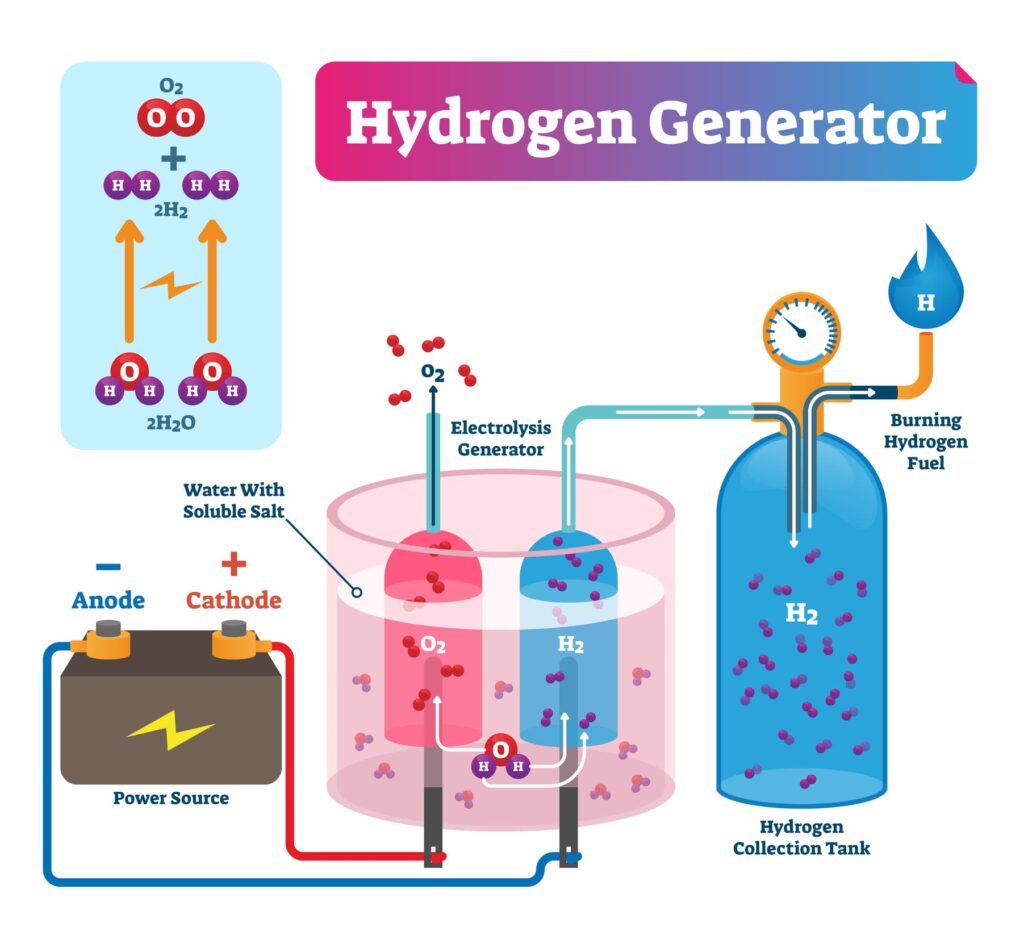
As hydrogen is not found in its pure state rather as a combined form, we must extract it. Hydrogen can be produced using electrolysis in case of water. It can also be fetched with the help of fossil fuels. However these processes require a lot of energy and investment of money. It can have environmental impact linked to it as well.
3) Mechanism and Complexity
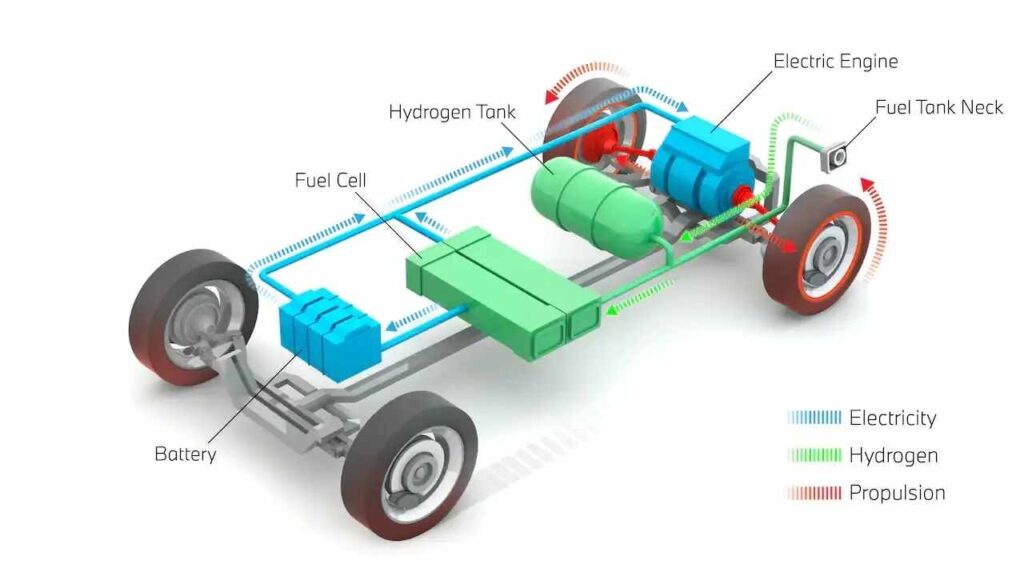
The internal structure and mechanism of an FCEV is way more complex and complicated than EVs and ICE vehicles. It contains lot of internal components such as Fuel Cell (anode, electrolyte and cathode), hydrogen tank, battery system, electric motor which together requires exceptional level of engineering.
4) Higher Cost of the Fuel
The cost of fuel that is hydrogen from refill stations is very expensive currently as compared to electric charging price or petrol/diesel price.
5) Availability of Hydrogen Gas Stations
There is very limited availability of hydrogen fuel stations which is only around 1000.
6) Efficiency of FCEV Cars
Hydrogen cars are very inefficient with just 33% efficiency while Battery electric vehicles have around 77% efficiency. This is because in order to produce hydrogen, electricity itself is the first set of resource which needs to be supplied. Now when hydrogen is finally created then it is transported using different ways. Now when hydrogen is filled into a car then it is once again converted into electricity, ultimately wasting a lot of energy in the entire process.
Conclusion
Hydrogen powered cars can be a good alternative to battery electric vehicles or internal combustion engine vehicles (ICEVs) on the basis of various aspects such as greenhouse gas emissions, refuelling time, abundance of the hydrogen fuel. Countries specially like China and India are looking towards using this technology and are actively investing into it.
Still there are various important aspects which need to be improved significantly such as infrastructure related to fuel availability in which the government and major private companies can only help, enhanced technology (R&D) in this sector which makes it safer and more efficient and cost friendly, significant enhancement in hydrogen production processes and transportation. Once these challenges are worked upon, hydrogen vehicles has the capability of picking up the pace in sales which EV did previously worldwide. You can read our related article on Nuclear Energy as well.
